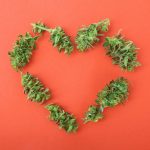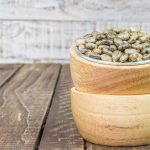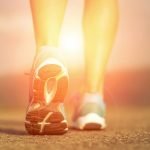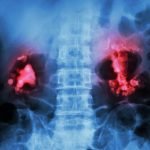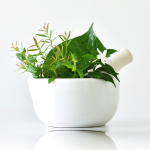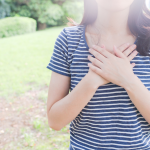A Hard Day’s Night
Circadian Disruption & Medical School
FRASER SMITH, MATD, ND
It’s been a hard day’s night, and I’ve been working like a dog.
It’s been a hard day’s night; I should be sleeping like a log.”
So sang John Lennon on the title song to the Beatles film A Hard Day’s Night. The operative phrase here is “I should be sleeping like a log.” Medical students certainly earn a good night’s sleep after very long and strenuous days. They need to recharge their body and brain, but many routines and responsibilities make this difficult. Unfortunately, this can undermine health and degrade the very learning and performance for which students sacrifice and labor so intensively.
The prevalence of insufficient or irregular sleep is common to medical students of all disciplines and in society. According to the (US) National Sleep Foundation, 1 in 3 American adults are not getting enough sleep.1 The public health agency of Canada states that 1 in 3 adults aged 35 to 64 doesn’t get the recommended amount of sleep.2 Data on medical students’ sleep reveals that American medical students get less sleep than the already insufficient average adult.3 It’s fair to assume that Canadian medical students are similar.
Unsurprisingly, the impact on learning and emotional health deserves more consideration by health care educators and administrators. Students can – and should – make demands on themselves to achieve the goal of learning. But if such behavior, while goal-focused, undermines learning, then it becomes counterproductive. If students are not well during school, what condition will they be in when they go out to pursue their careers?
Setting the Clock
When light hits the eye, a signal travels down the retinal thalamic pathway, which ultimately sets a central chronological clock in the suprachiasmatic nucleus. There are many peripheral clocks in the body’s various organs, including the heart, kidney, pancreas, and liver. These peripheral clocks have some autonomy but are “conducted” by the central clock.4,5 This system is very deep within the circuitry of our cells, but continued night work and irregular sleep patterns can disturb it. These disruptions in the central clock are compounded by spending daytime hours indoors, being in a semi-darkened classroom, viewing computer or projector screens, and using artificial light at night.
The disruption of the circadian rhythm can impact digestion, gastrointestinal motility, brain health, and metabolism.4,6,7 Circadian dysregulation is common in metabolic syndrome.7 So, when naturopathic students work through the night, are not outside much, and change their routines depending on what assignments are due or what exams come next, they are prime candidates for circadian dysfunctions.
Impacts on Learning and Life
Aside from what could be a very undermining health issue, what are some of the more direct effects on learning? Some research has outlined a positive correlation between sleep disturbance (as part of a circadian or cyclical dysregulation) and poorer academic performance.8 Other research has found that about a third of medical students suffer from insomnia or excessive daytime sleepiness.9 Admittedly, we’ve all encountered sleep-inducing lectures along the way, but these numbers suggest something pervasive. Using devices such as cell phones at night for social media activity has been linked to a negative impact on sleep and mood in medical students.10
What about students or recent graduates in clinical training? A study published in 2018 showed that when residents were more sleep-deprived and had higher stress during duties, their risky behavior while driving was more frequent. That is, they are more likely to do things like run red lights or fail to signal their intentions – both accident-producing behaviors.11 It comes as no surprise that medical residents who have done a nighttime on-call shift – even if they could grab some sleep – were less alert in the time after waking.12
Realities of Medical School
There is an essential tension to the work it takes to become a doctor, especially a naturopathic doctor. Our rigorous naturopathic medicine programs compress a large amount of knowledge and skills into a short timeframe. Research looking at reducing stress in medical students has included exercise classes and osteopathic manipulation.13,14 Fortunately, our students have access to care at our naturopathic medical college clinics. Self-care appointments at the clinic are an opportunity to learn about their future career and receive help on many levels – to identify their health risks, address the determinants of health, and experience the benefits of naturopathic therapies. There is also something special about a student working with an intern-student or resident who knows firsthand what naturopathic medical school is like from recent experience.
Ways to Help
It is difficult to see how to avoid the stressors and disturbances to circadian rhythms in medical school. A lot of work is needed: reading, focused preparation for exams, and assignments. The evenings are freer of distractions and a time when they are not in class. Aside from a few weekend mornings, the latter part of the day is the time that naturopathic medical students can get things done.
One thing we can do to support medical students is to integrate this information on sleep and circadian rhythms into the curriculum theoretically and practically. Understanding the biological basis of sleep and circadian rhythms will help students understand their own bodies and prepare them to work with future patients. My friend, Louise Edwards, ND, LAc, will often have students do a self-inventory of where they stand with the determinants of health. Sometimes, looking objectively at our habits and behaviors can put things into stark terms. It’s easy to forget how much we are robbing ourselves of sleep and how out of balance we feel when the race to the finish line is on. That tunnel vision is itself part of the chronic stress response and an act of will – we’ve all been at that point where we were determined to get through the semester and do well, whatever it takes.
Awareness of one’s behaviors, sharing this with one’s doctor, and knowing what it means can help with seeing the diminishing returns to some of these behaviors. I might feel a second wind at midnight and want to clear more studying off the list. But will I really learn all that much? Will it help my learning if my sleep is irregular, light, and contracted? What about the CREB and BDNF proteins? These proteins are supposed to brew in the brain at night to create memories and connections.
As a very active classroom teacher, I know that students have a lot of deadlines around every corner. The grind can seem incessant. It can help if a student can sometimes choose to close the books or dim the screen a bit earlier and save the sleep restriction for times when deadlines are around the corner. Perhaps adjusting those deadlines is part of a strategy, too. While we cannot remove the work it takes to achieve these goals, we can coordinate our deadlines with fellow faculty for any given cohort. Maybe we can make a deadline “oasis” from time to time. I sometimes guest lecture at the University of Illinois at Chicago, and the medical students there tend to have Fridays reserved for a special symposium. They must attend, and they have assignments to do, but it is not so intense (and can be interesting and refreshing). It might not be a 4-day week, but it allows for a little slack.
With medical knowledge proliferating, we may need to get a better sense of the true essentials. Paring down this information strikes me as a broad task involving many aspects of the profession, from colleges to accreditors, to licensing exams and the regulatory authorities who receive those scores. As mentioned in previous columns, finding efficient and enlivening ways to present education is part of this, too.
Final Thoughts
There is no easy answer, but as mentioned, students can rely on resources available to them at our clinics. For example, in my third year of naturopathic college, I was getting daytime sleepiness and very dry eyes. At night I was restless and too warm. At some point, I went to a large herbal dispensary near Spadina Avenue and Queen Street in Toronto that dispensed Traditional Chinese Medicine (TCM). The proprietor, who my clinical supervisor Dr Al Denov later told me was a physician trained in acupuncture and TCM, came over to speak with me. He asked me a few questions and looked at my tongue. He then reached for a product I had seen Dr Denov prescribe – for a woman with menopausal hot flashes! In my vast year 3 knowledge, I pointed this out to this man with 30 years of experience, and he kindly explained that I had depleted many of my yin energies from studying and looking so intensively at books into the very early hours of the morning. The product contained yin tonic herbs that nourished the liver and kidney and moistened the eyes. It worked!
There are many challenges in being a naturopathic medical student; missing out on sleep is a side effect and causes problems. But at least we can do what we do so well: think about ways to improve the situation and support healing, as best we can under the circumstances, a patient at a time.
References
- Sleep by the numbers. National Sleep Foundation. https://www.thensf.org/sleep-facts-and-statistics. Published May 14, 2021. Accessed June 22, 2022.
- Canada PHAof. Are Canadian adults getting enough sleep? https://www.canada.ca/en/public-health/services/publications/healthy-living/canadian-adults-getting-enough-sleep-infographic.html. Published September 6, 2019. Accessed June 22, 2022.
- Azad MC, Fraser K, Rumana N, et al. Sleep disturbances among medical students: a global perspective. J Clin Sleep Med. 2015;11(1):69-74.
- Duboc H, Coffin B, Siproudhis L. Disruption of Circadian Rhythms and Gut Motility: An Overview of Underlying Mechanisms and Associated Pathologies. J Clin Gastroenterol. 2020;54(5):405-14.
- National Sleep Foundation. Understanding Circadian Rhythms. https://www.thensf.org/what-is-a-circadian-rhythm/. Accessed June 22nd, 2022.
- Steele TA, St Louis EK, Videnovic A, Auger RR. Circadian Rhythm Sleep-Wake Disorders: A Contemporary Review of Neurobiology, Treatment, and Dysregulation in Neurodegenerative Disease. Neurotherapeutics. 2021;18(1):53-74.
- Zimmet P, Alberti KGMM, Stern N, et al. The Circadian Syndrome: is the Metabolic Syndrome and much more! J Intern Med. 2019;286(2):181-91.
- Phillips AJK, Clerx WM, O’Brien CS, et al. Irregular sleep/wake patterns are associated with poorer academic performance and delayed circadian and sleep/wake timing. Sci Rep. 2017;7(1):3216.
- Alsaggaf MA, Wali SO, Merdad RA, et al. Sleep quantity, quality, and insomnia symptoms of medical students during clinical years. Relationship with stress and academic performance. Saudi Med J. 2016;37(2):173-182.
- Mohammadbeigi A, Absari R, Valizadeh F, et al. Sleep Quality in Medical Students; the Impact of Over-Use of Mobile Cell-Phone and Social Networks. J Res Health Sci. 2016;16(1):46-50.
- McManus B, Heaton K, Mrug S, et al. The effect of poor sleep and occupational demands on driving safety in medical residents. Traffic Inj Prev. 2018;19(sup2):S137-S140.
- Basner M, Dinges DF, Shea JA, et al. Sleep and Alertness in Medical Interns and Residents: An Observational Study on the Role of Extended Shifts. Sleep. 2017;40(4):zsx027.
- Yorks DM, Frothingham CA, Schuenke MD. Effects of Group Fitness Classes on Stress and Quality of Life of Medical Students. J Am Osteopath Assoc. 2017;117(11):e17-e25.
- Wiegand S, Bianchi W, Quinn TA, et al. Osteopathic manipulative treatment for self-reported fatigue, stress, and depression in first-year osteopathic medical students. J Am Osteopath Assoc. 2015;115(2):84-93.
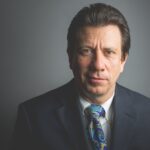
Fraser Smith, MATD, ND is Assistant Dean of Naturopathic Medicine and Professor at the National University of Health Sciences (NUHS) in Lombard, IL. Prior to working at NUHS, he served as Dean of Naturopathic Medicine at the Canadian College of Naturopathic Medicine (CCNM) in Toronto, Ontario. Dr. Smith is a licensed naturopathic physician and graduate of CCNM.




